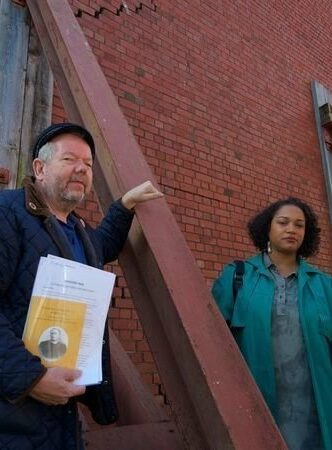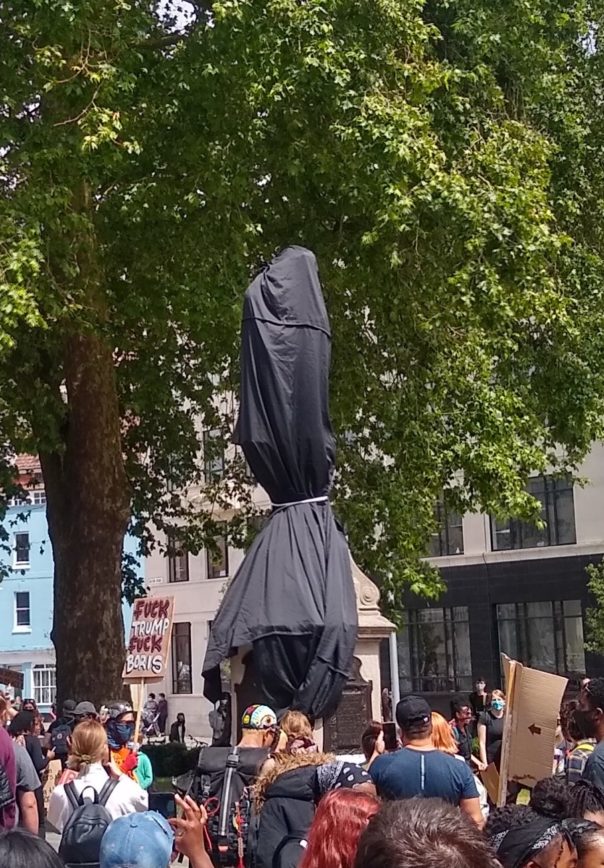
Bristol’s memorial landscape is woeful, there’s not one statue to any of the city’s brilliant women, and a complete omission of the most important of all, a major memorial to the victims of enslavement – despite citizens calling for just such a thing many times over the past three decades.
Apart from a single gallery in the city’s main museum, M Shed, and a notable display to abolitionist John Wesley in the New Room’s Methodist museum, there’s no specific memorial and nothing of any scale. Certainly nothing to reflect the fact that Bristol was the preeminent transatlantic slave port in the world during the second quarter of the eighteenth century. Other prominent hubs of transatlantic slavery have recognised their role in the ‘vile trade’ and created their own memorials and museums, notably Nantes, Liverpool and Amsterdam amongst several others.
The Abolition Shed project
In response to this gross oversight in Bristol the Abolition Shed project was launched in 2017. The project is supported by Bristol Radical History Group, Countering Colston and the Long John Silver Trust. It was considered vital by Abolition Shed campaigners that any proposal should be located prominently in the heart of the city where the history happened, and be supported and funded under the auspices of Bristol’s existing cultural offerings.
The theme of ‘Abolition’ was chosen because it encompassed the actions of the enslaved from everyday resistance to revolts, insurrections and revolutions and those who fought in Britain to end the slave-trade and slavery. In Bristol there were many people who both spoke out and physically fought against slavery. Any memorial should be joined by a museum or visitors centre which captures the hidden histories of the resistance of enslaved Africans and the abolitionists in Bristol and elsewhere. The proposers believe the theme is a good way to try and bring communities together over what is a highly divisive topic.
Abolition Shed 1
The first proposal was inspired in 2017 by local residents on Welsh Back who targeted two Bristol City Council owned, though disused, quayside transit sheds close to the Redcliffe Bascule Bridge. Unfortunately, Bristol City Council had other plans, and despite objections the location was allowed to go to a developer. For details of the initial scheme see Abolition Shed 1.
Abolition Shed 2
After the first scheme was scuppered, other locations were considered, and another site was chosen with arguably even more potential than Welsh Back – Bristol’s redundant Seaman’s Mission and Chapel near Pero’s Bridge. For details go to Abolition Shed 2. While trying to present the case for this though plans were effectively quashed after an impasse in the Bristol Transatlantic Slavery Legacy Group and the resignation of the Abolition Shed delegate due to their disgraceful treatment at the hands of the Deputy elected Mayor.
Why are we waiting?
While Bristol City Council ponders, and people take matters into their own hands, for example the toppling of the Colston statue last June, Lisbon in Portugal is putting in place the very project that’s so desperately needed in our city. The Lisbon plans echo entirely what we feel is required in Bristol:
- Artists/architects of African descent to design the memorial
- A prominent historic location on waterfront
- A garden of remembrance
- An Interpretation Centre/Dedicated Museum to contextualise the memorial
So this is where we are, an extremely frustrating position, where the city and its leaders just bumble on with their talking shops whilst accusations are still flying of ‘slavery obscured’, ‘sweeping the past under the carpet’ and ‘whitewashing history’. We need the will and vision amongst political leaders to ring-fence the funds and the location for this or a similar project, something which appears to be severely lacking.
Stuff linked to this project...
Events
 The real story of the Countering Colston campaign
The real story of the Countering Colston campaign
The real story of the Countering Colston campaign
 Not A BRHG Event
Not A BRHG Event
The Devastating Voyage of Captain Thomas Phillips, Welsh Slaver and his Enslaved Captives
 Not A BRHG Event
Not A BRHG Event
Colonialism and Memory in Bristol
 Not A BRHG Event
Not A BRHG Event
International Women’s Day
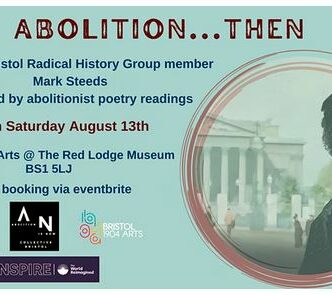
Abolition … Then
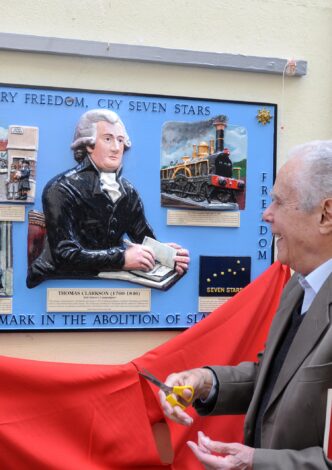
History Walk: Severing the sinews of slavery in Bristol
Blog
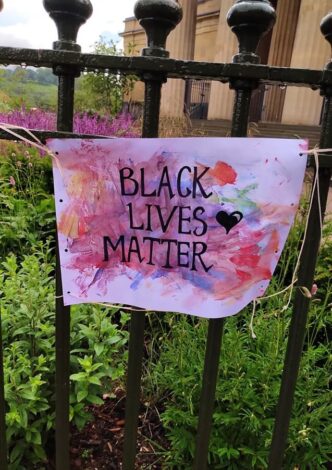
The role of Museums in constructing our understanding of the Trans-Atlantic Slave Trade
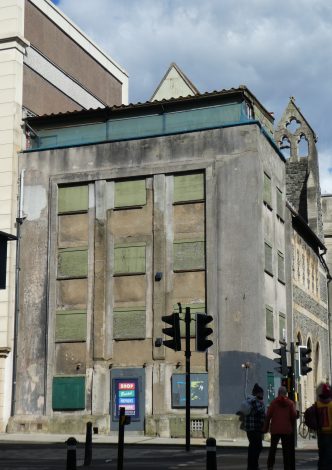
Abolition Shed 2 – details
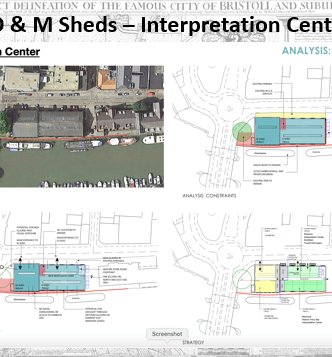
Abolition Shed 1 – details
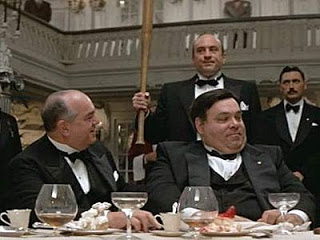
The Legacy Steering Group – Local historians out, Merchant Venturers in?
